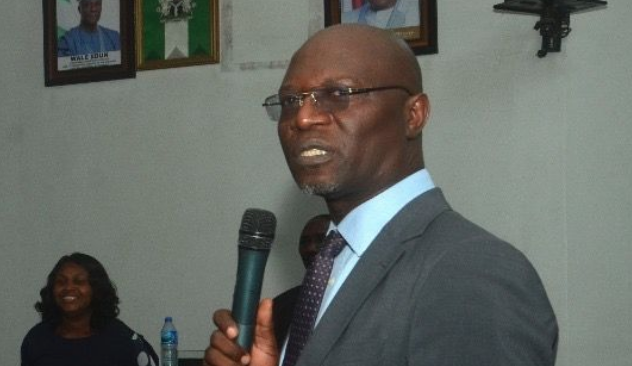The Securities and Exchange Commission (SEC) says banks have raised N1.7 trillion through electronic offering (e-offering) in the recapitalisation exercise.
Electronic offering is the use of internet or other electronic means, including mobile or unstructured supplementary service data (USSD) platforms to provide access to prospectuses, offering memoranda, subscription forms and other documentation for subscription to securities and related documentation as well as payment for such subscription.
Emomotimi Agama, director- general of SEC, spoke in a statement in Lagos on Wednesday.
On March 29, the Central Bank of Nigeria (CBN) released new guidelines on the minimum capital requirement for banks operating in Nigeria.
Advertisement
The CBN adjusted the capital base for commercial banks with international licences to N500 billion, while that of national and regional financial institutions were pegged at N200 billion and N50 billion, respectively.
Also, CBN raised the minimum capital requirement for merchant banks to N50 billion for national licence holders.
The financial regulator said the new capital base for national and regional non-interest banks is N20 billion and N10 billion, respectively.
Advertisement
The banks are expected to raise N4.14 trillion by March 31, 2026, which is the deadline.
Providing updates on Wednesday, Agama said the launch of the e-offering platform has been instrumental to the success of the exercise so far.
The director-general said over N1.7 trillion was raised in 12 applications by nine banks, while some applications were still pending.
According to Agama, technology is an enabler in the capital market and a prime tool for growth.
Advertisement
He added that the commission would continue to employ technology in different angles to aid its work and ensure a deeper capital market.
“The e-offering platform was pivotal in ensuring the success of the banks’ recapitalisation exercise, enabling over N1.7 trillion to be raised,” he said.
“What you have seen so far is the use of technology to drive the market with more investors coming into the market.
“That tells you what technology can do. We are also exploring technology for other activities, such as, monitoring and surveillance and other processes that will bring about a cohesion of all the policies that SEC has applied to make the market grow bigger.”
Advertisement
‘INTRODUCTION OF E-FILING, STREAMLINED REGISTRATION RO REDUCE TIME TO MARKET’
Agama also said the commission had implemented various initiatives to reduce time to market, including streamlined registration processes, introduction of an electronic filing system and enhanced regulatory frameworks, among others.
Advertisement
The efforts, Agama said, were aimed at improving the efficiency and attractiveness of the Nigerian capital market, while promoting economic growth and development.
“A shorter time to market can benefit capital market development in several ways, such as increased liquidity; faster listing allows companies to access capital more quickly and increase liquidity in the market,” he added.
Advertisement
“Improved investor confidence; efficient listing processes can enhance investor trust and confidence in the market.
“Enhanced competitiveness; a shorter time to market can make a jurisdiction more attractive to companies and investors, promoting competition, growth and better allocation of resources.
Advertisement
“Faster capital raising enables companies to allocate resources more efficiently, driving economic growth.”
The SEC DG expressed optimism about achieving President Bola Tinubu’s $1 trillion economic target, adding that the capital market is uniquely positioned to provide the long-term funding necessary to fuel economic diversification and growth.
He further said the nation needs to diversify the economy beyond oil exports by investing in infrastructure, human capital and innovation, to enhance the business environment.
Agama said the country must also reduce regulatory hurdles, as well as promote financial inclusion and access to credit for small and medium enterprises (SMEs) and individuals.
Add a comment









